Best Hearthstone Decks For The Perils in Paradise Meta
Here are some of the best decks to try on day one of Hearthstone's Perils in Paradise expansion.
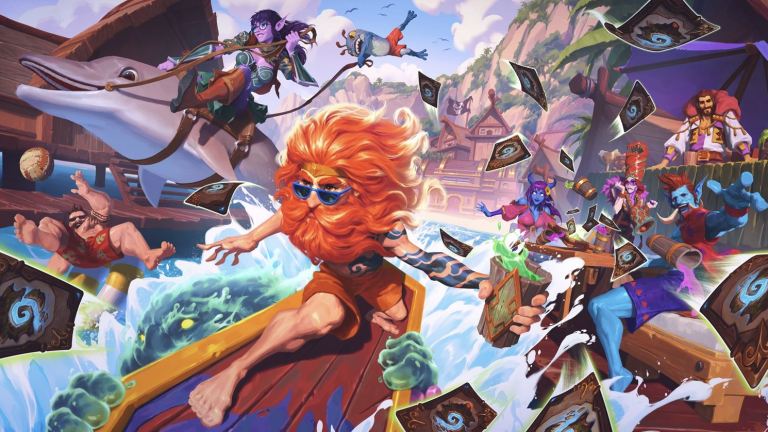
Hearthstone‘s Perils in Paradise expansion offers some of the most unique decks in the game’s recent history. The ability to utilize Tourist cards that allow you to combine cards from different classes not only creates new strategies but opens up deckbuilding possibilities that are simply nutty.
While some classes currently benefit from that mechanic more than others, here’s a look at each class’ best deck in the earliest days of Hearthstone‘s Perils in Paradise expansion.
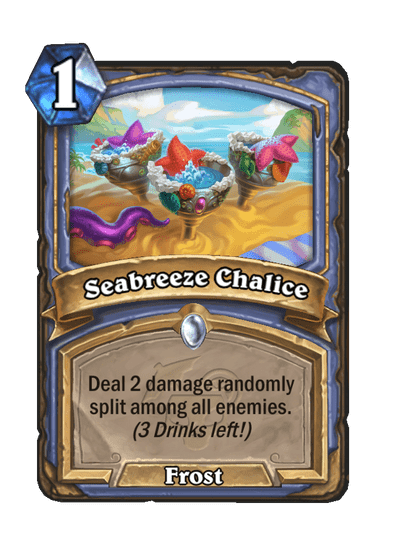
Druid Concierge OTK
Deck Code: AAECAZICAqW7BoDXBg6i6QXb+gX9jQaaoAaHsQaUsQbZsQbDugbVugbCvgaBvwaAygaD3Ab35QYA
This Druid deck is not only the most powerful deck in Perils in Paradise; it’s one of the most powerful day-one Hearthstone expansion decks we’ve seen in years.
The keys to this deck are the new Mage card Seabreeze Chalice and the neutral card Concierge. When combined with Druid’s numerous spell power-generating options, those cards allow you to generate an absurd amount of OTK board and face damage that can practically be accessed for free once Concierge is in play. The only thing more absurd than the damage this deck can produce in a single turn is how little set-up that damage requires and how early you can theoretically kill your opponent if a few things break your way. This deck will almost certainly be nerfed in the very near future.
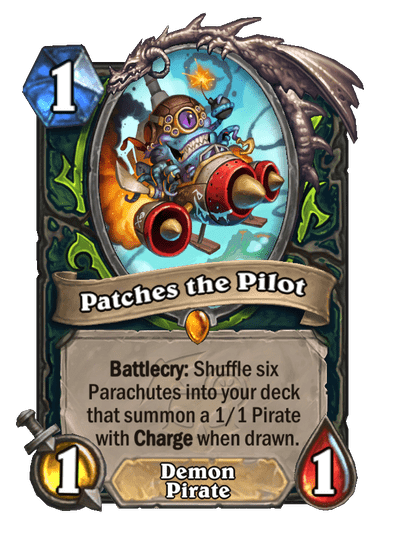
Demon Hunter Pirates
Deck Code: AAECAea5AwSongbHpAb8wAa6wQYNr6AE5OQFsvUFhY4G7p4G/KgG17gG1sAG2MAG9sAGrcUGl8oGy8oGAA==
Demon Hunters have only been flirting with relevancy as of late, but this Pirate deck will almost certainly elevate them to the top (if not the very top) of the meta power rankings early into the expansion.
Like any good aggro deck, this Pirate deck will win most of its games by generating a consistent stream of on-board damage. Crucially, though, this aggro deck not only possesses an unusually generous amount of card draw options but can use that card draw as part of a simple late-game combo that redirects all fatigue damage to your opponent. All but the most powerful OTK decks will struggle to respond to this deck’s many offensive options.
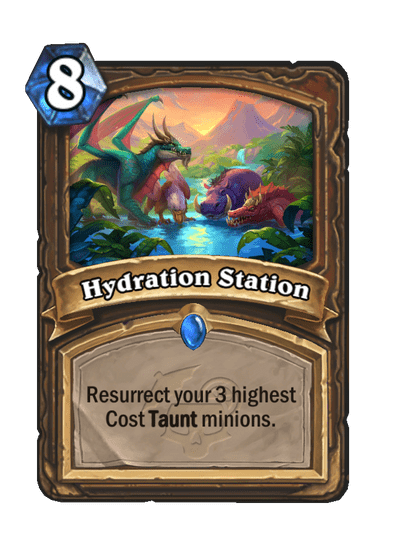
Hydration Station Warrior
Deck Code: AAECAQcGrNEF2IEGx6QGk6gGusEG+skGDI7UBPDNBZD7BYuUBpyeBoegBo+oBtW6Bo6/BtDKBvPKBv7bBgA=
While aggressive and OTK decks figure to be incredibly powerful in the early days of the new expansion, this Warrior deck gets by with old-fashioned attrition and really big minions.
Well, I suppose that isn’t technically true. By utilizing a small collection of Druid man ramp cards, this Warrior deck can quickly reach maximum mana and use those resources to easily play Hydration Station. When combined with a couple of incredibly powerful taunt cards (most notably, Zilliax) Warriors can use Hydration Station to pack the board with massive and sticky minions that most decks simply have no reliable way of removing multiple times a game. This figures to be the dominant control deck in the early days of the meta.
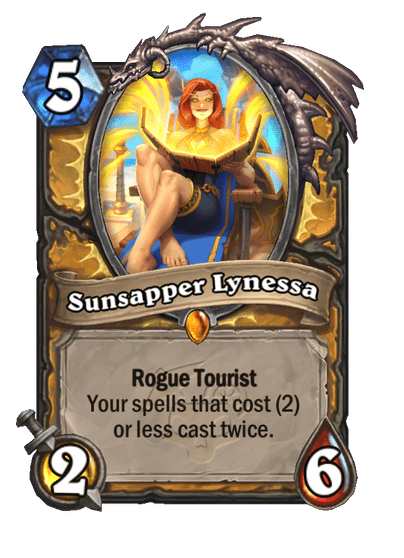
Lynessa Paladin OTK
Deck Code: AAECAdTBBASXoATSuQa6zgan0wYNktQEkIMGlo4GvI8GkqAGhqMG1LgGwr4Ghr8Gw78G6ckG88kGjNYGAAA=
To be clear, this Paladin OTK deck is a bit wonky compared to the other OTK options out there. It certainly requires some practice to successfully pilot. The payoff, however, is very much worth the effort.
The basic idea here is to use Sunsapper Lynessa to cast as many Holy Glowsticks spells as possible. At a bare minimum, you can easily cast four Holy Glowstick spells in a single turn for 16 damage. With help from a few simple shenanigans, though, you can double that number during a single turn and maybe even stretch beyond that. It doesn’t quite match what Druid is doing at the moment (few things do), but it’s incredibly powerful.
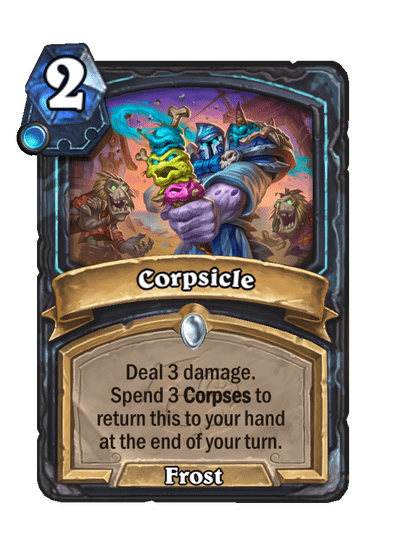
Rainbow Deathrattle Death Knight
Deck Code: AAECAfHhBAT8+QX/lwbBsQbIyQYN88gF5coF8OgFkZcGkqAG/7oGgcAGx8kG/8kGkMsGmcsGlM8G1uUGAAA=
While this deck may struggle to keep up with some of the slightly more broken decks early on, it is consistent, powerful, and largely builds upon an established strategy.
This Rainbow DK deck features all of that archetypes’ old tricks but incorporates a powerful new Corpse-spending card: Corpsicle. That card not only helps you spend the excess Corpses that previous versions of this deck were often left with but it allows you to reliably chip away at the enemy’s health while building towards your late-game finisher. This is just a solid all-around deck that should be viable for quite some time to come.
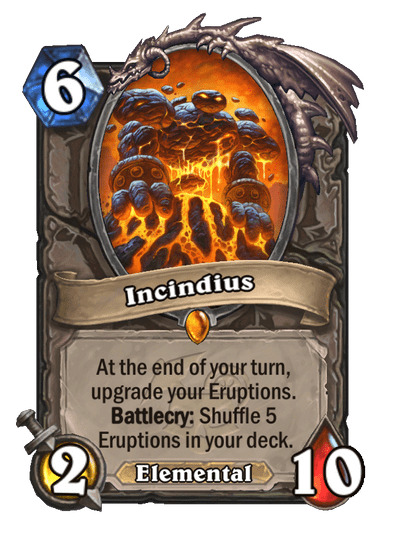
Elemental Shaman Reloaded
Deck Code: AAECAaoIBObkBcCPBr2+BrrBBg3joATf/gWwjQaKjwa+jwbslQbMogbTpwamwAawygaozgaW0wbt5gYA
Compared to some of the other decks in this expansion, there really isn’t a gimmick to this archetype. You’re going to be playing Elementals and a lot of them. However, whereas previous versions of this deck excelled at generating tempo and struggled to end the game, this version of that concept brings a couple of powerful friends to the party.
Namely, Lamplighter allows you to deal impressive amounts of direct damage simply by playing Elementals while Incendius slowly builds toward a devastating finisher while allowing you to control the board. It feels like this deck isn’t quite as refined as it will eventually need to be, but its straightforward nature is arguably an asset in the early days of the expansion experiments. While more elaborate versions of this concept will almost certainly be introduced at some point, this deck offers a sneaky way to earn some quick wins early on by simply outpacing your opponent on just about every turn.
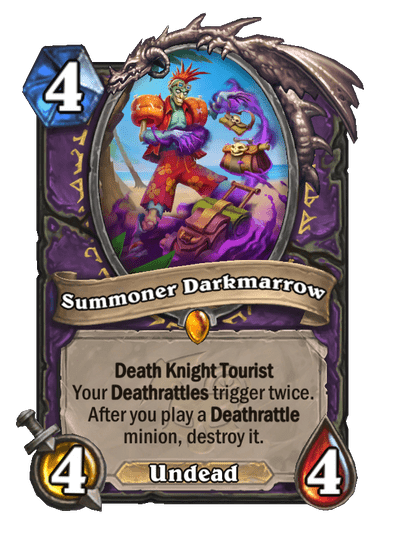
Deathrattle Tourist Warlock
Deck Code: AAECAZbHBAiXoASeuAbHuAbHyQanygaoygaTywaA1wYL7v0FkIMGhY4GmJcGo6AGw7gG/7oG/8kGlcoGkMsGlcsGAAA=
Granted, it’s hard to argue against the new and improved version of Pain Warlock early into the expansion. However, the new Deathrattle Warlock that is floating around may just be the scarier aggro deck in the long run.
While this version of that concept controversially sacrifices the core Pain package, it goes all-in on the Deathrattle theme by utilizing select Death Knight cards. The result is a deck that can create board states that can only be properly dealt with via the mass silence cards that just don’t really exist in standard Hearthstone at the moment. It lacks the powerful punches of its pain contemporaries but may be harder to deal with turn-to-turn.
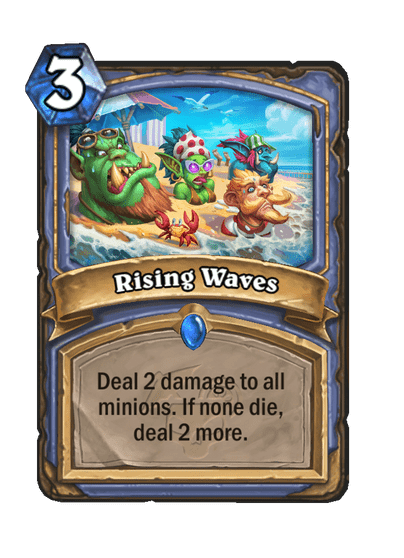
All Spell Mage
Deck Code: AAECAf0EAA/9ngSAwgWmwwXL/gWDlQbWmAbymwayngblpgazpwbluAaFvwaxzgaF5gaG5gYAAA==
In the long run, some version of Rainbow Mage will probably end up being the most powerful Mage deck in the expansion. In the short term, an All Spell Mage may be your best option.
While this deck only utilizes a couple of new cards (Rising Waves and Tide Pools), those cards happen to fit perfectly into the more aggressive Spell Mage variants that are currently quite strong. The idea here is to use your improved resource regeneration and board clear abilities to kill the enemy outright before they can do anything too clever. Few other decks at the moment deal this kind of “from hand” damage throughout the game, which gives Spell Mage several advantages.
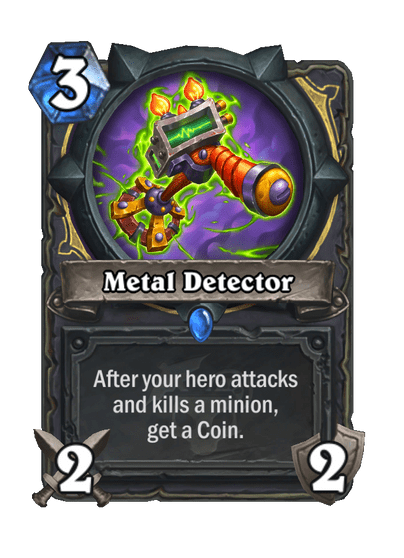
Wishing Well Rogue
Deck Code: AAECAaIHBIukBbjFBY6WBoqoBg32nwT3nwTfwwXo+gWQgwa5hgbIlAbOlAatpwbuqQbpyQbyyQaM1gYAAA==
There’s a pretty scary Elemental Rogue deck that could end up being a real problem, but it lacks a lot of flavor, fun, and could prove to be a bit slow. That’s why I’m giving the early nod here to Wishing Well Rogue.
Granted, this deck depends on some generous RNG as all Wishing Well-based decks do. Crucially, though, this expansion makes it significantly easier to consistently generate the coins that make the Wishing Well engine run. That means that your Wishing Well turns come earlier and are generally more bountiful. This deck can get worked by combos but it performs remarkably against most strategies.
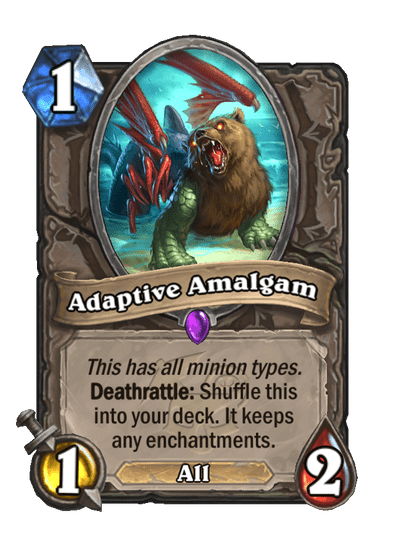
Amalgam Buff Hunter
Deck Code: AAECAR8C3LgGltMGDuT1BZn2Bcj2BaT6Bc6OBt+OBuqlBsvABs7ABtnABrfBBovWBo7WBv7lBgAA
I don’t love any of the new Hunter archetypes at the moment, but if you’re going to try something new with the class, an Amalgam-based deck may be the way to go.
While a neutral card, Hunter has the unique tools required to both buff Adaptive Amalgam and draw it consistently enough to make it a real problem. Yes, you’re in for a bad time if that card gets silenced, but at the moment, there aren’t a lot of popular Silence effects in the game. So long as that Amalgalm stays in play, you’re basically constantly forcing your opponent to deal with it rather than execute their strategy.
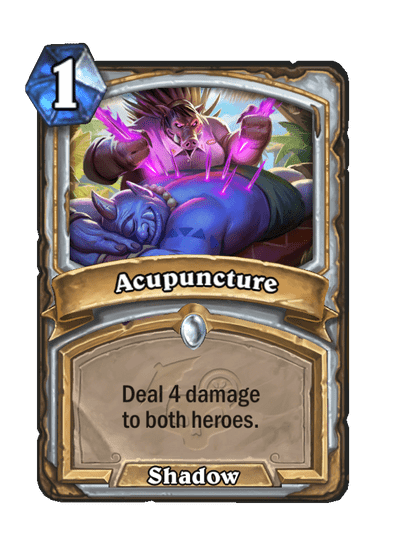
Automaton Priest
Deck Code: AAECAfewBgaW1ATPxgXP9gWv/wWknQbX0gYMu8cFpvEF7fcF+/gF44AGxpwGmcAGzsAG1MEG1cEGi9YGjtYGAAA=
Priest is clearly meant to be a more aggressive class in this expansion, but I have my doubts as to whether or not a single expansion is enough to push the class in that direction. However, I will say that this updated Automaton deck feels pretty nasty at the moment.
Just as before, the goal of this deck is to play as many Astral Automaton cards as possible and watch as those 1-cost minions grow into giants. This time, though, Priest gains access to cards that not only make generating Automatons easier but allow them to deal direct damage when an Automaton is not available. That combination of improvements to an established strategy and improved aggro tools makes this the most consistent aggro Priest option.



